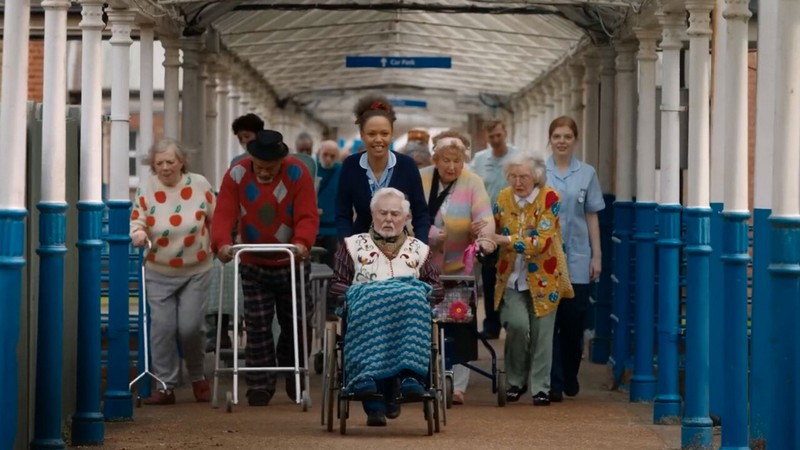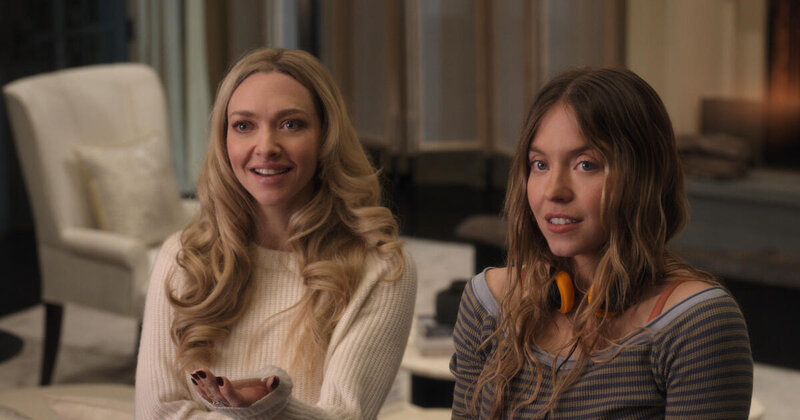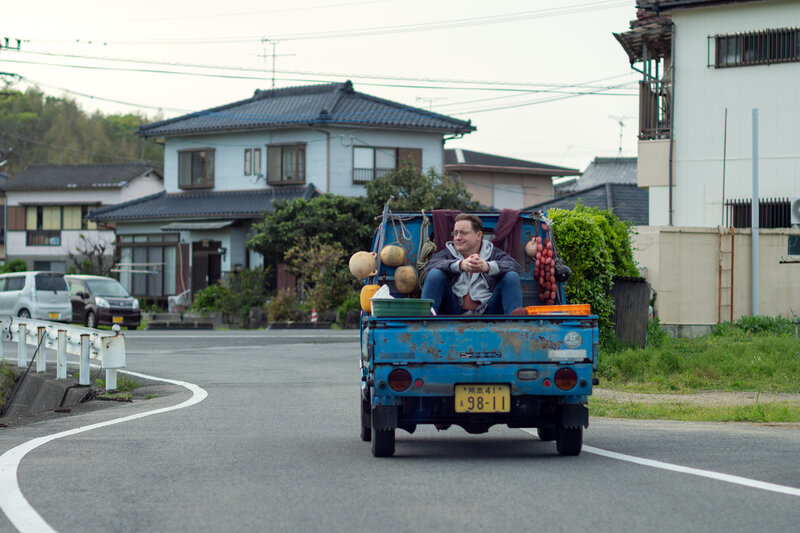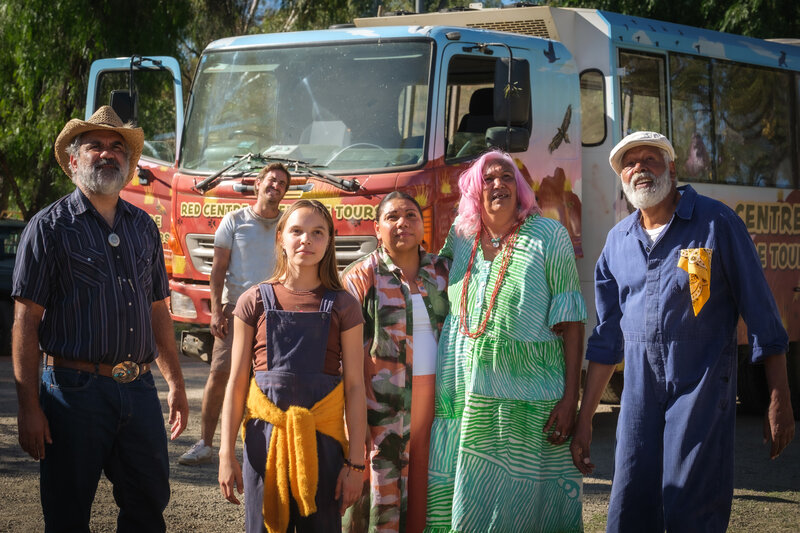In director by Richard Eyre’s Allelujah, the Bethlehem is a small geriatric hospital in Yorkshire and its various wards are named after celebrities who have donated money. But the hospital is now being threatened with closure due to budget cuts by the Minister of Health as the politician wants to focus the health system on efficiency and centres of excellence and he feels that the cost of looking after old people is not worth the expense. He decides that the Bethlehem should be closed and sends his consultant Colin Colman (Russel Tovey, from The Good Liar) to oversee the process. Ironically Colin’s father Joe (David Bradley, best known for playing Argus Filch in the Harry Potter series) is a patient at the hospital. Joe is a former miner who lived through the economic hardships and tough policies of the Thatcher era, and he has never been comfortable with Colin’s sexuality. But during Colin’s visit to the hospital, they start to reconcile. Recognising the importance of the Beth in his father’s care and treatment Colin returns to London to defend the hospital and the NHS.

Meanwhile Andy (played by Louis Ashbourne Serkis, the son of motion capture guru Andy Serkis), a wide-eyed work experience kid, experiences the hectic pace but also the caring attitude of the staff of the Bethlehem and the eccentricities of the elderly patients. Dr Valentine (theatre actor Bally Gill) is a dedicated and idealistic doctor who cares for his patients, and we see much of the drama from his perspective.
The hospital itself has tried to gain local support to keep it open, running cake stalls. They have even invited a film crew to document the hospital and its preparations for a concert to celebrate the career of its dedicated and caring matron Sister Alma Gilpin (Jennifer Saunders). Dr Valentine gives Mary (Judi Dench), a retired former librarian, her own I-pad so she can record her own personal experiences of the hospital, but she uncovers something darker and unexpected. And further cracks begin to appear when an elderly patient mysteriously dies and her bereaved family consider taking legal action because they have been denied an inheritance. “If they (the children) love them so much, why do they leave them here?” offers up Sister Gilpin in a moment of candour in response to the family’s faux concerns.
Allelujah is based on the acclaimed 2018 play written by Tony award winning playwright Alan Bennett (The History Boys) and is billed as another of those feelgood films about old folk behaving badly. But the film itself is critical of the under-funding of the health system, particularly in regard to the treatment of geriatrics. But the play also deals with themes of aging, mortality, family, and Bennett expresses his views of the importance of health care and his disdain for politics.
The play has been adapted to the screen by Heidi Thomas (Call The Midwife), and it explores the difficulties of old age and the plight of health care. But the material is tonally uneven, especially when the jokes about aging and bedpans give way to a third act that abruptly tackles the controversial issue of euthanasia in cringeworthy fashion. The ending is particularly jarring given the lighter tone of much of the proceedings. The film ends with a coda as Valentine, who is working in an intensive care unit at the start of the COVID pandemic, breaks the fourth wall to praise the doctors and nurses who work under Britain’s NHS, which is especially poignant. These theatrical devices may have worked on the stage but somehow they seem a little clunky on the screen.
Eyre (Notes on a Scandal)has assembled a strong ensemble cast that includes veterans like Derek Jacobi and Dench to bring the eclectic cast of characters to life, but many are not given much to work with here. And neither Bennett nor Thomas gives us much insight into the various characters so we don’t care about their plight.
Saunders, who is best known for her caustic comedic style in the TV series Absolutely Fabulous, is cast against type here as the officious, no-nonsense matron whose caring demeanour hides an unpleasant darker side. Jacobi plays Ambrose, a former teacher who is pedantic and churlish and expresses his contempt for some of his fellow patients.
Donal Woods’ production design for the interiors of the hospital is good, and the film has been nicely shot by cinematographers Tony Sankey and Ben Smithard.
Greg King
Other reviews you might enjoy:

Greg King has had a life long love of films. He has been reviewing popular films for over 15 years. Since 1994, he has been the film reviewer for BEAT magazine. His reviews have also appeared in the Herald Sun newspaper, S-Press, Stage Whispers, and a number of other magazines, newspapers and web sites. Greg contributes to The Blurb on film





